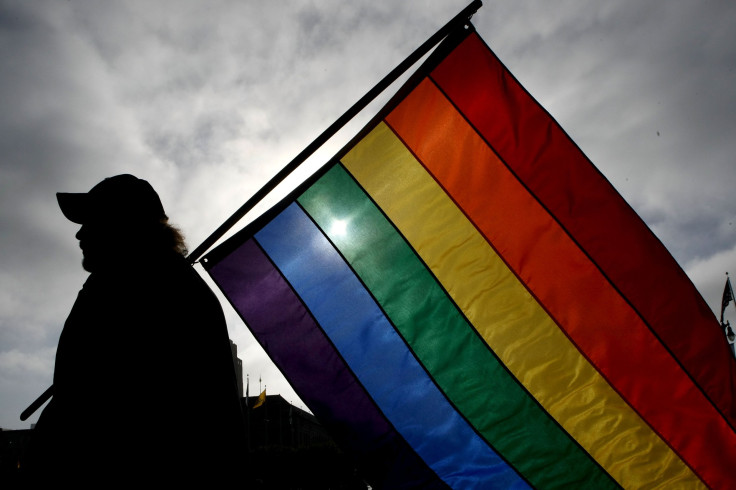Gay Marriage Bans Upheld By Federal Appeals Court In Kentucky, Michigan, Ohio And Tennessee

A federal appeals court upheld bans on same-sex marriage in four U.S. states on Thursday, in a reversal of a trend that had seen such bans struck down multiple times in recent months.
The U.S. Court of Appeals for the Sixth Circuit delivered a 2-1 ruling that reversed lower court rulings in Kentucky, Michigan, Ohio and Tennessee, which had struck down bans on same-sex marriage, according to CNN.
The court also held that Ohio, Kentucky and Tennessee are not required to recognize same-sex marriages conducted in other states, according to a report from Reuters. The ruling is the first by a federal appeals court that has upheld states' decision to ban same-sex marriage, and gay rights advocacy groups suggested they would seek a U.S. Supreme Court review of the decision.
Judge Jeffrey Sutton, who was appointed by President George W. Bush, wrote for the majority decision: “When the courts do not let the people resolve new social issues like this one, they perpetuate the idea that the heroes in these change events are judges and lawyers.
“Better in this instance, we think, to allow change through the customary political processes, in which the people, gay and straight alike, become the heroes of their own stories by meeting each other not as adversaries in a court system but as fellow citizens seeking to resolve a new social issue in a fair-minded way.”
The dissenting opinion, authored by Judge Martha Craig Daugherty, said, “the author of the majority opinion has drafted what would make an engrossing TED Talk or, possibly, an introductory lecture in political philosophy.
“But as an appellate court decision, it wholly fails to grapple with the relevant constitutional question in this appeal.”
Daugherty suggested the majority had deliberately upheld the ban in order to force the Supreme Court to take up the matter, according to a report from BBC News.
"Because the correct result is so obvious, one is tempted to speculate that the majority has purposefully taken the contrary position to create the circuit split," she wrote, adding that a Supreme Court ruling would put "an end to the uncertainty of status and the interstate chaos that the current discrepancy in state laws threaten."
Gay rights groups expressed anger and disappointment at the decision. “We’re extremely disappointed for the families in these four states, but this decision highlights the need for the U.S. Supreme Court to right this injustice,” Susan Sommer, director of constitutional litigation for Lambda Legal, which helped argue one of the six cases involved in Thursday’s decision, told the New York Times.
Groups opposed to same-sex marriage however, welcomed the plan. "This decision gives greater certainty that this matter will ultimately return to the Supreme Court, as we have said all along that it must," Brian Brown, president of the National Organization for Marriage, told USA Today, adding that the apex court would uphold "the constitutionality of states' amendments on marriage."
In October, the U.S. Supreme Court refused to rule in cases from five states where judges had struck down bans on same-sex marriage. According to the Los Angeles Times, Supreme Court judges commented that since all the lower courts agreed, there was no need for their intervention.
In 2014, same-sex marriage bans have been overturned in states including Wyoming, Virginia, Oklahoma, Idaho, Alaska, Utah, Arizona, and Kentucky, one of the states covered in Thursday's ruling. Same-sex marriage is now legal in 32 U.S. states, and the District of Colombia.
According to ProCon.org, seven states -- Arkansas, Florida, Kansas, Kentucky, Michigan, Missouri and Texas -- have all had bans on same-sex marriage overturned, but are appealing.
© Copyright IBTimes 2025. All rights reserved.





















